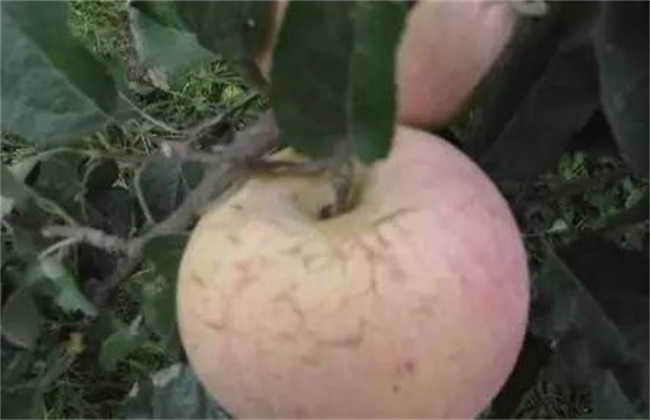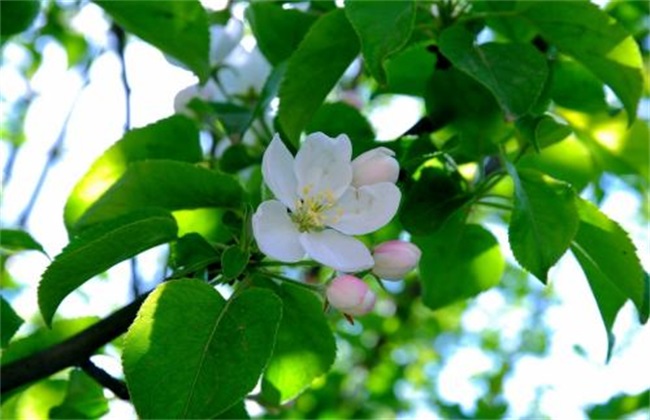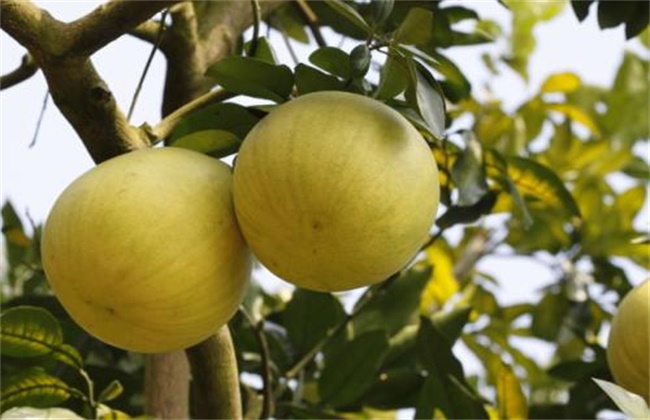Causes of serious cracks in bagged apples and their prevention and treatment
Bagging technology has been widely used in apple planting, it not only reduces the harm of apple diseases and insect pests, but also reduces pesticide residues, and greatly improves fruit quality and commodity value. However, when some fruit growers use bagging technology, they will still find that their apples have serious cracks. What is the reason for this? How to prevent and cure it? Come and have a look with the editor.

1. Calcium deficiency
Calcium deficiency is one of the main causes of cracks in bagged apples. Calcium is the basic element in the epidermis of apple fruit, because calcium is not easy to move in the tree, and the movement in the tree is realized by tree transpiration. On the other hand, the transpiration of bagged apples is much less than that of branches and leaves, and the only calcium will be taken away by branches and leaves, and the fruit can not get enough calcium, resulting in serious cracks.
Prevention and treatment: calcium supplement is the key point to prevent cracks. Apple's demand for calcium generally has two peak periods every year, the first period is about 4 weeks after falling flowers, and the second period is the period of rapid growth of fruit cells, usually from August to September. And during this period, apple's demand for calcium accounts for more than 70% of the total demand for calcium. Therefore, timely calcium supplement is needed. Generally, 0.3%-0.4% sugar alcohol chelate calcium is sprayed many times in the budding period, after flowering, and during the harvest period.
2. Bad climate
Poor climate is the cause of cracks in bagged apples. In the summer high temperature season, the water conservancy facilities in many orchards are uneven and can not be irrigated in time, but in the transition between summer and autumn, the rainfall is abundant and the fruit will expand rapidly. the growth rate of pericarp is far from keeping up with the growth rate of pulp, so cracks are formed on the surface of pericarp.
Prevention and control methods: to strengthen fertilizer and water management, which is an important link to prevent cracks, especially in the fruit period, when the climate is dry, it is necessary to timely watering to keep the soil moist, and to do a good job of ditching and drainage when the rainfall is large. As far as possible, do not plant absorb a lot of stagnant water.
3. Poor permeability
When the permeability in the crown is poor, the moisture on the shade side of the fruit can not be distributed quickly, resulting in cracks and wound corking. If the fruit is light, there will be black spots, and if it is heavy, the fruit surface will be split into strips or horizontal wounds, and the fruit will wither and break in the later stage. Completely lose the value of the commodity. On the other hand, the sunny side of the fruit is often colored evenly, and the crack phenomenon rarely occurs, while the phenomenon of fruit crack on the shade side is more serious.
Prevention and control methods: through reasonable pruning to ensure good permeability and improve light transmittance, especially in some old orchards, because of extensive management and poor tree structure, tree transformation should be carried out as soon as possible to improve photosynthetic efficiency. Second, timely thinning of flowers and fruits, maintaining a reasonable load on the tree, balancing the vegetative growth and reproductive growth of the plant, and reducing the absorption of calcium by branches and leaves.
4. Uneven fertilization
Many orchards use a large amount of nitrogen fertilizer, while ignoring the application of phosphorus, potassium and micro-fertilizer, resulting in the tree vegetative growth is too deep, so that the lack of calcium is more consumed in the growth of branches and leaves, resulting in more serious fruit cracks. Too high nitrogen content in the fruit during the expansion period will accelerate the occurrence of cracks. The cracks propagate along the lenticels at first and obvious transverse cracks will be formed in the later stage.
Control methods: should increase the application of organic fertilizer, improve the content of soil organic matter, fertilizer is mainly mature organic fertilizer, combined with the application of appropriate amount of phosphorus and potassium fertilizer and trace elements. It can also grow grass between the rows of the orchard, which can also provide sufficient green manure for the fruit trees, improve the soil structure and adjust the microclimate in the orchard.
The above is the introduction of the serious causes and prevention methods of bagged apple cracks. I hope I can help you. If you want to know more about it, please follow us.
Related
- Moge, come on! The staff of the peasant association in the producing area of cantaloupe were frightened when the crowd gathered.
- Causes and Solutions of low Fruit setting rate of Apple
- Symptoms and control measures of passion fruit virus disease
- Fruit growing lesson: how do apple orchards keep high yields?
- Can you build orchards in the mountains? What are the pros and cons?
- How to manage the coloring period of Crisson grape?
- This paper introduces the processing technology of two kinds of fig products.
- How much is a month for retired teachers in rural areas by 2020?
- How can strawberry planting increase sugar content? We should pay attention to management in many aspects.
- What are the cultivation techniques on how to improve the yield of golden fruit?



